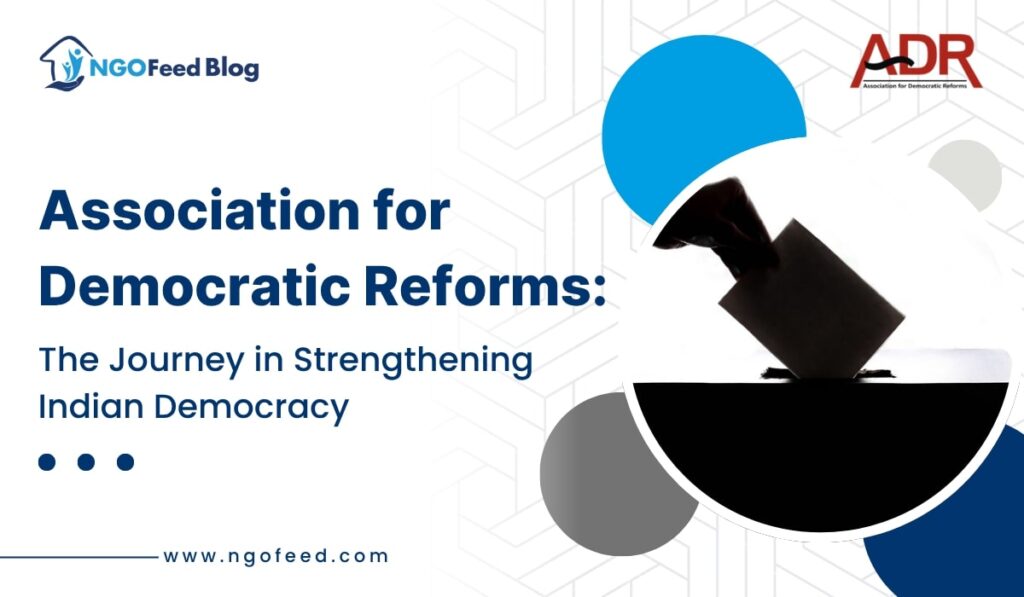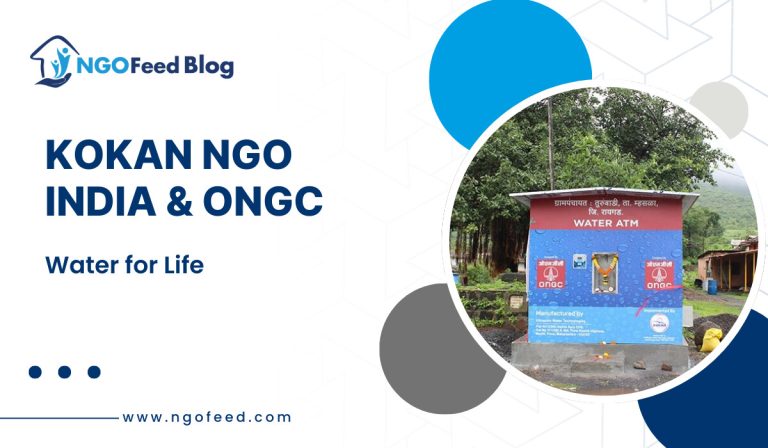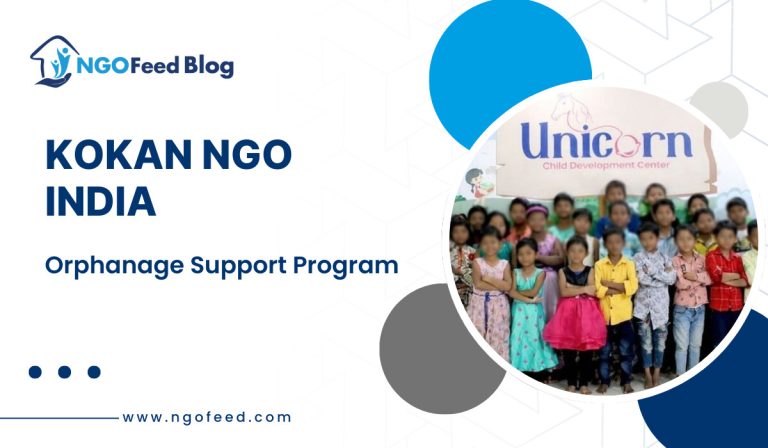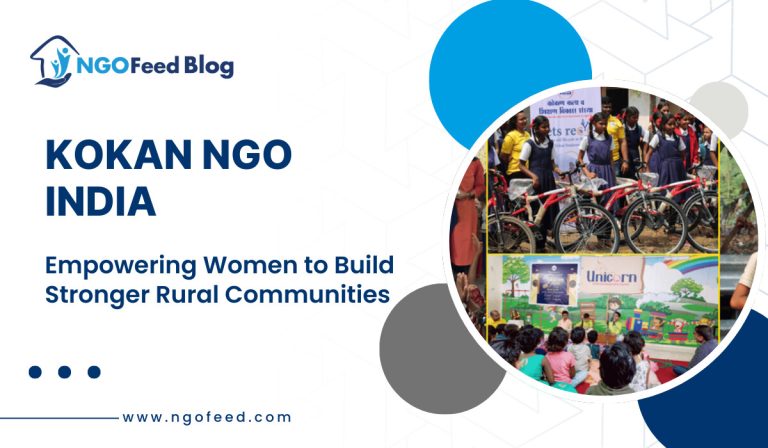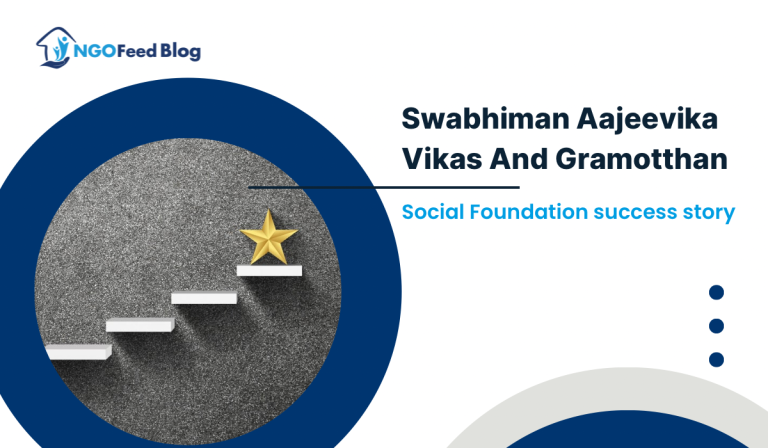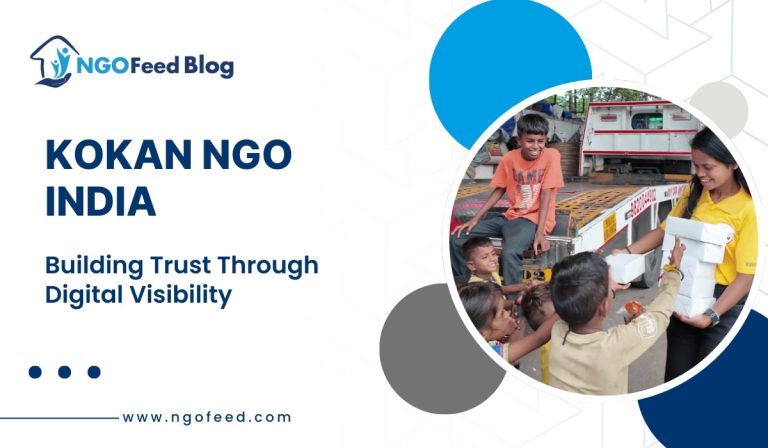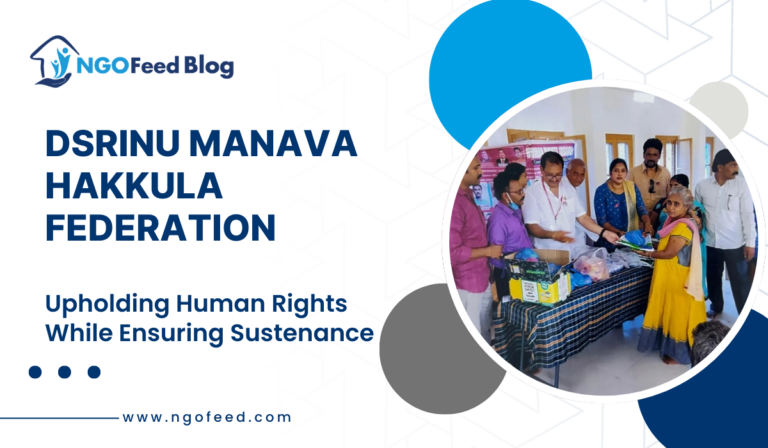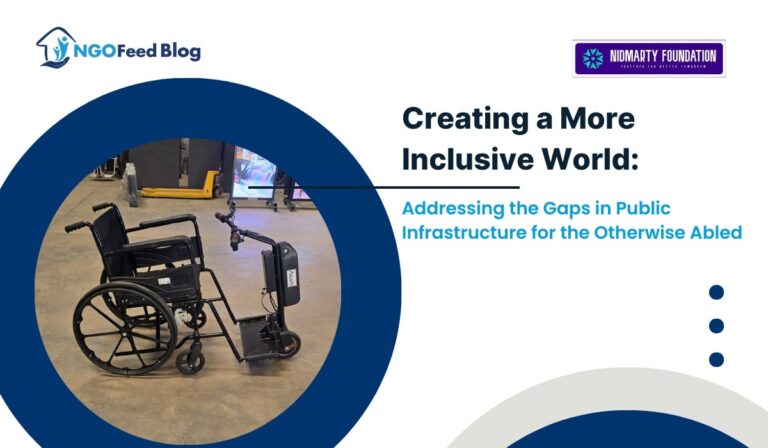Democracy is often celebrated as the rule of the people. But to ensure that it is more than simply a slogan, people must have access to information about who is seeking power, what they stand for, what personal baggage they carry and how they are funded. For years, much of this information on politicians in India was opaque and that space was filled by the non-partisan, non-governmental organization and the Association for Democratic Reforms (ADR). Over more than two decades, it has brought attention to and slowly changed the landscape of electoral transparency and accountability.
Its journey has included years of litigation, public awareness campaigns, court decisions and reforms that have occurred incrementally and that included some landmark victories that altered the law around elections and changed the behavior of political actors. This is the story of ADR, what happened, what it accomplished and the road ahead…
Table of Contents
Origins: Why and How ADR Started
- Founding: ADR was established in 1999 by a group of 11 concerned citizens, primarily professors and alumni from IIM Ahmedabad, along with a professor from the National Institute of Design, Ahmedabad.
- Motivation: The founders recognized a deficit in Indian democracy that voters often did not have reliable and accessible information about the candidates contesting elections such as their criminal records, financial status or educational background. In many cases, this lack of information favored those who could deploy money or muscle power. ADR’s initial goal was to address that opacity.
- Legal strategy: From its inception ADR focused heavily on public interest litigation (PIL), petitions, RTI (Right to Information) requests and leveraging constitutional mechanisms. Its strategies were research-based and backed with data, which made its case stronger in courts, before election authorities and in public opinion.
Key programs: Two core programmes emerged early:
- Election Watch (National Election Watch, NEW) analyzing affidavits filed by candidates, making data about their criminal, financial and educational backgrounds publicly available.
- Political Party Watch tracking finances of political parties, their income, expenditure, donations, using RTI, court interventions etc., in order to push for more transparency
Landmark Wins: What ADR Has Achieved
ADR’s path has been marked by several watershed moments, judgments or decisions that brought systemic changes. These are some of the most significant successes:
- Mandatory Candidate Disclosures (2002-2003): ADR’s PILs led to Supreme Court judgments (in 2002 and 2003) making it mandatory for candidates contesting elections to Parliament and State Assemblies to file affidavits disclosing their criminal history, financial assets, liabilities and educational qualifications. This created the foundation for informed choice by voters.
- Public Access to ITRs of Political Parties (2008): After litigation, the Central Information Commission (CIC) directed that Income Tax Returns of political parties, along with assessment orders, should be placed in the public domain. That meant parties had to be transparent about their finances.
- Registers of Members’ Interest: After sustained RTI battles, in 2011 the CIC mandated that registers of members’ interests (financial and other relevant interests) of legislators be made public. ADR’s intervention was instrumental in this.
- NOTA (None of the Above) in EVMs (2013): ADR intervened in the case that led the Supreme Court to order that the option of NOTA be included in Electronic Voting Machines (EVMs). This gives voters a formal way to reject all the candidates if they wish.
- Disqualification of Convicted MPs/MLAs: Also in 2013, a Supreme Court judgment (in a case in which ADR intervened) disallowed sitting MPs and MLAs from holding office once convicted in a court of law.
- Electoral Bonds Declared Unconstitutional (2024): One of the more recent and high-impact successes where ADR challenged the Electoral Bonds Scheme (2018), which allowed political donations with near-anonymity among other issues. In February 2024, the Supreme Court struck it down calling it unconstitutional, especially because it violated voter’s right to information and transparency.
- Appointment Process of Election Commissioners: In March 2023, ADR succeeded in a petition that directed that appointment of the Chief Election Commissioner and Election Commissioners must be done based on recommendations from a committee including the Prime Minister, Chief Justice of India and the Leader of Opposition or leader of the single largest opposition party in the Lok Sabha. This reduces executive discretion in appointments.
- VVPAT, EVM Verification and Related Reforms: ADR has also pushed for greater accountability through insisting on cross-verification for VVPAT slips, storing symbol loading units etc. For example, in April 2024, Supreme Court refused some demands but directed that certain verification or preservation of EVM components be mandatory.
Also Read: Common Cause India: Four Decades of Justice and Accountability
Other Contributions: Spreading Awareness and Engagement
Legal judgments are only part of the story. ADR has also built public awareness, conducted campaigns, used technology and worked with stakeholders.
- Affidavit data dissemination: The data about candidates is made easily accessible (for example through portals like MyNeta) so that voters, journalists, civil society can examine it. This transparency enables informed voting.
- Election expenditure monitoring: ADR tracks how much is being spent and how political parties report their finances, bringing media attention to excess or violations.
- Youth outreach and voter awareness: ADR runs campaign programmes, workshops, seminars, uses digital tools to engage voters and youth. Getting people to care about transparency and accountability is a core part of their work.
- State‐partnership network: ADR works with many state partners across India (over 1200) to do grassroots work, ensuring its reach is not confined to New Delhi but percolates to local levels.
- Awards and recognition: Recognition by state and national bodies, including CSO awards, awards for “Ethical Governance”, “Public Service” etc., which not only validate the work but also raise visibility.
Association for Democratic Reforms – Challenges and Limitations:
Success has come, but not without resistance, difficulties and limitations. Some of the obstacles ADR faces:
- Political resistance and legal hurdles: Many political actors have resisted or delayed compliance, e.g. parties resisting being brought under RTI, contesting court orders, etc. Enforcing judgments can be slow or partial.
- Resource constraints: Being an NGO working on legal cases, research, outreach, ADR needs funds and human resources. Sustaining operations, especially awareness campaigns in large and diverse states is expensive.
- Scope of reforms vs. implementation gap: Even after legal judgments, ensuring actual implementation (on ground) e.g. parties fully disclosing finances, verifying affidavits for false claims and speeding up judicial processes can lag. The law is one thing, actual political behavior and accountability is another.
- Changing tactics, evolving challenges: As laws tighten in some areas, new methods emerge (e.g. trying to channel funds in opaque ways) or legal loopholes get exploited. ADR must constantly adapt. Also, issues like misuse of electoral rolls, identity verification or other technical/legal issues remain. For example, in the recent case of ADR vs. Election Commission of India (Bihar Special Intensive Revision of electoral rolls), ADR challenged possible exclusion and lack of transparency in deletions from the draft roll.
What Makes ADR Effective: Lessons from Their Success
Reflecting on ADR’s journey, certain features stand out as critical enablers of its success. These can provide lessons for civil society, NGOs and reformers everywhere.
- Evidence-based approach: ADR’s work is underpinned by solid research, collecting data, analyzing affidavits, financial disclosures, then using that evidence in court, publicity and advocacy. Without credible data, reform loses legitimacy.
- Use of legal mechanisms: The combination of PILs, RTI requests, pushing for Supreme Court decisions, CIC orders etc. This multi-pronged legal strategy helps to create binding change rather than just moral pressure.
- Public engagement and transparency: Making information available to ordinary voters (through reports, websites like MyNeta and media coverage) builds public pressure. Voters, journalists and civil society become active players. Awareness campaigns, workshops etc. help build demand for clean politics.
- Non‐partisanship and credibility: ADR has generally avoided being aligned with any political party, which helps maintain its authority. Its founder’s academic reputations also added credibility.
- Strategic patience and persistence: Some reforms took years (or decades) of legal struggle and public pressure. ADR has persisted through setbacks. It’s not always immediate but over the long term it has built cumulative change.
Impact: How Indian Democracy Has Been Transformed
Because of ADR’s work, Indian democratic processes are measurably more transparent and voters are better informed. Some concrete impacts:
- Voters now routinely have affidavits of candidates before polls, election analysis (by media, civil society) refers to their criminal, financial, and educational data. It’s now expected that candidates declare these. (This used to be rare or uneven.)
- Political parties are under greater public scrutiny for their finances. Donations, sources of funding etc. are more visible. That changes political incentives and the parties that want voter trust are pushed to be more accountable.
- Judicial interventions have curtailed practices that allowed convicted individuals to remain in office, permitted anonymous funding, or concealed conflicts of interest.
- The culture of political disclosure has shifted. Even parties that oppose transparency in public may sometimes comply due to expectation, due to risk to reputation etc.
- Several legislative and administrative changes have followed court orders. For example adding NOTA to EVMs, regulating for VVPAT verification etc.
- In some instances, ADR’s findings have driven media stories, public debate, even affecting voter behavior or candidate selection (insofar as parties may avoid fielding very controversial candidates).
Recent Landmark: Electoral Bonds Judgment
In February 2024, the Supreme Court struck down the Electoral Bonds Scheme, considered one of ADR’s biggest recent victories. The scheme was criticized for encouraging anonymous political funding and undermining transparency. ADR’s petition argued that it violated the constitutional right of voters to information, among other things. The judgment shows how ADR’s long-standing stance on political finance transparency paid off.
This judgment has wide implications as it alters how political parties can receive donations, how funding is disclosed and how voters might assess the integrity of parties or candidates. It’s likely to shift political finance norms for years.
Conclusion
The Association for Democratic Reforms embodies the ways in which civil society can act as an important force in shaping democracy. By harnessing the power of research, legal action, public mobilization and relentless advocacy, ADR has changed the norms of electoral politics in India to the direction of transparency, accountability and integrity.
Its achievements are not mere lofty ideals, they change what information voters have access to, how electoral financing works, what candidates can be expected to achieve and how political parties are understood in public life. Each affidavit made public, each court decision made, and each voter that makes a more informed choice adds to the core of democracy.
But reform can never be “done”, reform is a process. As new problems arise, technologies and funding shifts and we need to remain vigilant. The story of the ADR reminds us that when it comes to democracy, rights, transparency and accountability are not gifts, they are something earned through hard work, resistance and ethics.

